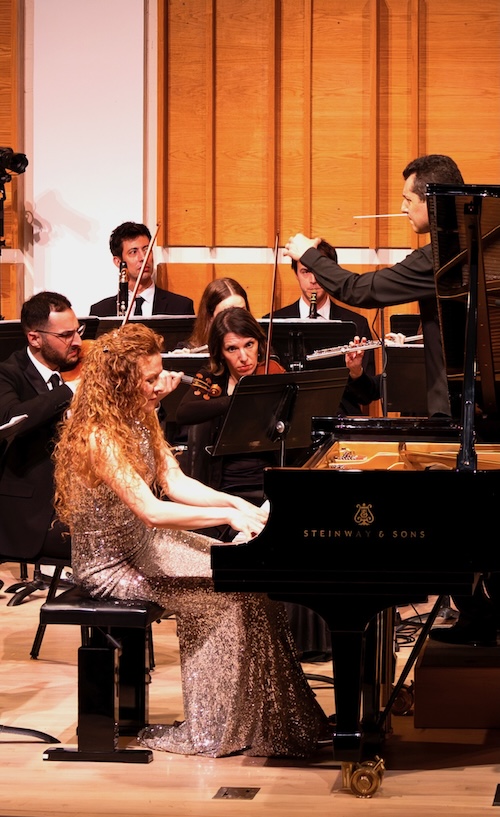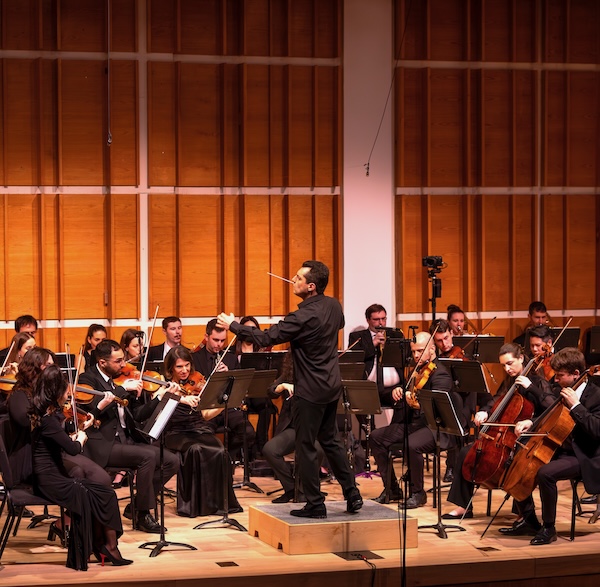Pegasus excavates an American rarity with Beach concerto

On Saturday evening, Pegasus: The Orchestra, led by Karén Hakobyan, presented its season finale at Merkin Hall. Billed as “an evening celebrating the power and diversity of American music,” the program offered less a journey than a retrospective featuring two composers rooted in European Romanticism, each offering a distinct vision for the future of musical identity in the United States at the turn of the twentieth century.
The evening centered on Antonín Dvořák’s “New World” Symphony and Amy Beach’s Piano Concerto in C-sharp minor, both written in the last decade of the 1890s. Dvořák’s symphony has, of course, long held a place in the canon, yet Beach’s virtuosic piano concerto remains underperformed and deserving of greater recognition.
Though born decades and an ocean apart, both Beach and Dvořák imagined different approaches to what music from the United States could become. For Dvořák, the inspiration came from spirituals and Native American melodies, heard during his stay in the United States and filtered through the vantage point of his Czech musical heritage. For Beach, a member of the Boston School of composers, it came from within: personal lyricism drawn from her own art songs and Anglo-Saxon roots, embedded in late-Romantic harmonic language modeled after Brahms.
Asiya Korepanova was the soloist in Beach’s concerto. She approached the concerto’s sweeping themes with Rachmaninoff-like rubato and intensity, bringing out its emotional charge but occasionally lacking the clarity and structural poise Beach’s roots. The constant demand for dense textures, particularly in octaves, sixths, and chordal writing, was met with stamina and flair. Some of the louder passages may have reflected the immediacy of Merkin Hall’s acoustic, which emphasized the piano’s brightness in more forceful dynamics. Rubato was especially free in the second theme of the opening movement. In the final movement, the cello solo’s lyricism felt closely tied to the concerto’s origins in Beach’s vocal writing.
Hakobyan shaped the concerto with a firm sense of pacing, allowing Beach’s formal architecture to come through. The orchestra provided solid support, especially creating a dance-like backdrop for the soloist in the Scherzo. Despite occasional balance issues, the performance as a whole was received with deserved enthusiasm for both the pianist and the composition.

Nicholas Gawley’s Appalachia followed, the winning entry in Pegasus’ 2024 Call for Scores. The composer described the work as a personal reflection on his early years in southwest Virginia before relocating to England. The music unfolded in long, lyrical lines, carried by a neo-Romantic language that avoided sentimentality. The climax offered expressive dissonance, and the final passage with a quiet flute commentary evoked a Copland-esque stillness. Gawley’s orchestration was sensitive and effective, providing a reflective interlude and contemporary voice.
Dvořák’s Symphony No. 9 closed the program with commanding energy and a strong sense of ensemble from the Pegasus musicians. The first movement unfolded with stately pacing and assurance under Hakobyan’s direction. In the Largo, the English horn solo had fluid, forward momentum and a rich tone. Throughout, the conductor’s balancing of orchestral sections was thoughtfully managed, and even in the brass-heavy finale, the sound never felt overwhelming.
Tchaikovsky’s “Trepak” from The Nutcracker was the surprise encore, delivered with crisp articulation and lively spirit.